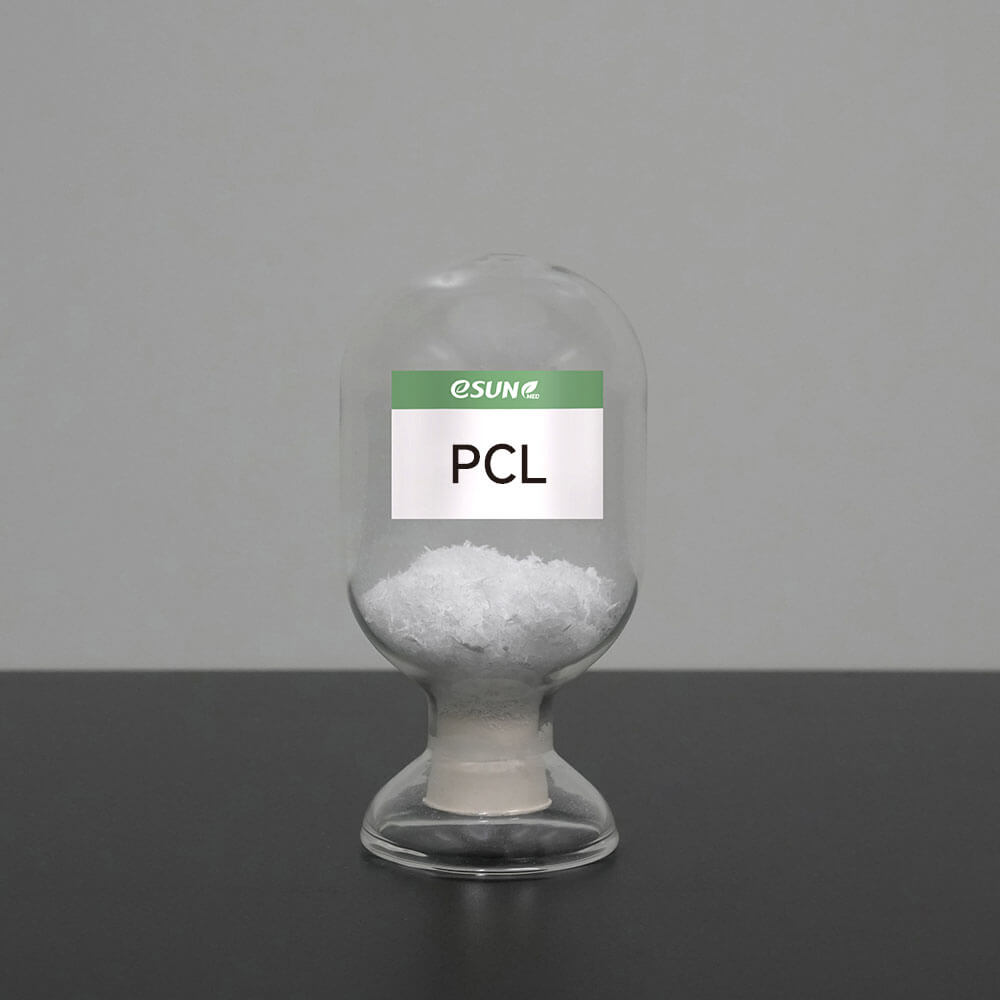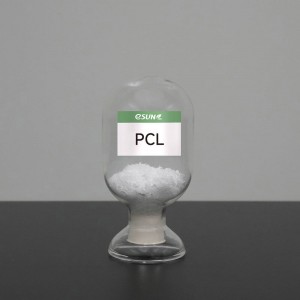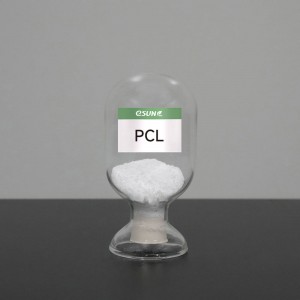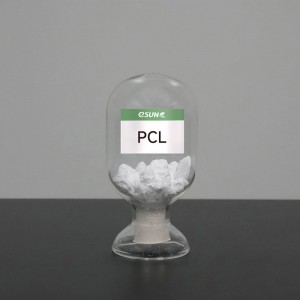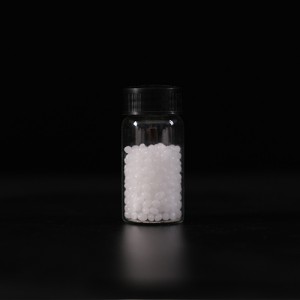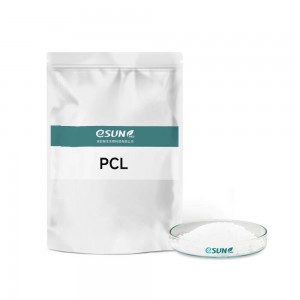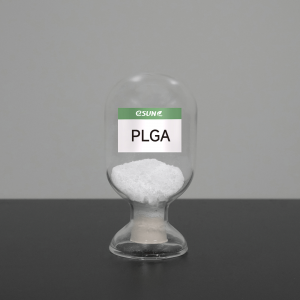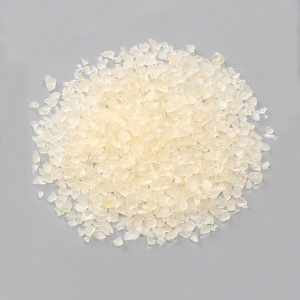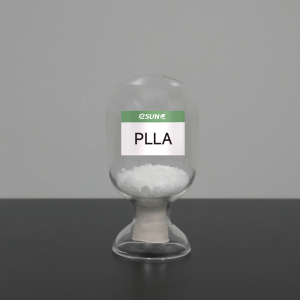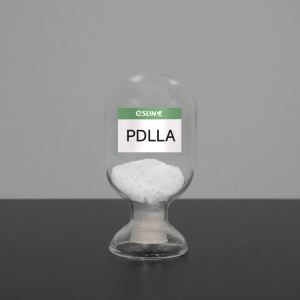PCL
PCL has excellent biocompatibility, memory, biodegradability, etc. It is widely used in various fields. Polycaprolactone, soft, good processability, and excellent performance, can be used in tissue engineering. Polycaprolactone has high crystallinity and slow degradation.
Its degradation in vivo can be divided into two stages: the first stage shows that the molecular weight decreases continuously without deformation and weight loss; The second stage refers to that after the molecular weight decreases to a certain value, the material begins to lose weight and is gradually absorbed and excreted by the body.
Application:
Surgical suture, orthopedic splint, radiotherapy plate, resin bandage, dental impression, etc.
Product indicators:
Chemical formula: (C6H10O2) n
Viscosity average molecular weight: 1-1000000;
Intrinsic viscosity: 0.1-2.0dL/g;
Product appearance:┬ĀWhite or light brown solid
Product Index:
| Item | Unit | Standard┬ĀValues | Reference Standard | Method | Result |
| Appearance | / | White┬ĀSolid | / | Visual Inspection | White┬ĀSolid |
| Intrinsic Viscosity [╬Ę] | dL/g | / | GB/T┬Ā37642-2019 | 25┬░C’╝īTHF | 1.0 |
| Moisture | % | Ōēż0.5 | GB/T┬Ā37642-2019 | Karl Fischer coulometric titration |
0.12 |
| Monomer residue | % | Ōēż0.5 | YY/T┬Ā0661-2017 | GC | 0.16 |
| THF solvent residue | ppm | Ōēż720 | YY/T 0661-2017 | GC | Qualified |
| Total solvent residue | ppm | Ōēż1000 | YY/T 0661-2017 | GC | Qualified |
| Heavy Metal Residue (Pb) | ╬╝g/g | Ōēż10 | YY/T 0661-2017 | Colorimetric Method of Chinese Pharmacopoeia |
Qualified |
| Sn Residue | ╬╝g/g | Ōēż150 | YY/T 0661-2017 | ICP | Qualified |
┬Ā*Produced in GMP workshop, each batch will provide the corresponding COA report.
| Model┬ĀNo. | Intrinsic┬ĀViscosity┬Ā[╬Ę]┬Ā(dL/g) | Test Conditions |
| PCL02 | 0.20-0.26 | THF’╝ī25Ōäā |
| PCL04 | 0.35-0.43 | THF’╝ī25Ōäā |
| PCL08 | 0.70-0.90 | THF’╝ī25Ōäā |
| PCL12 | 1.00-1.30 | THF’╝ī25Ōäā |
| PCL17 | 1.50-1.90 | THF’╝ī25Ōäā |


